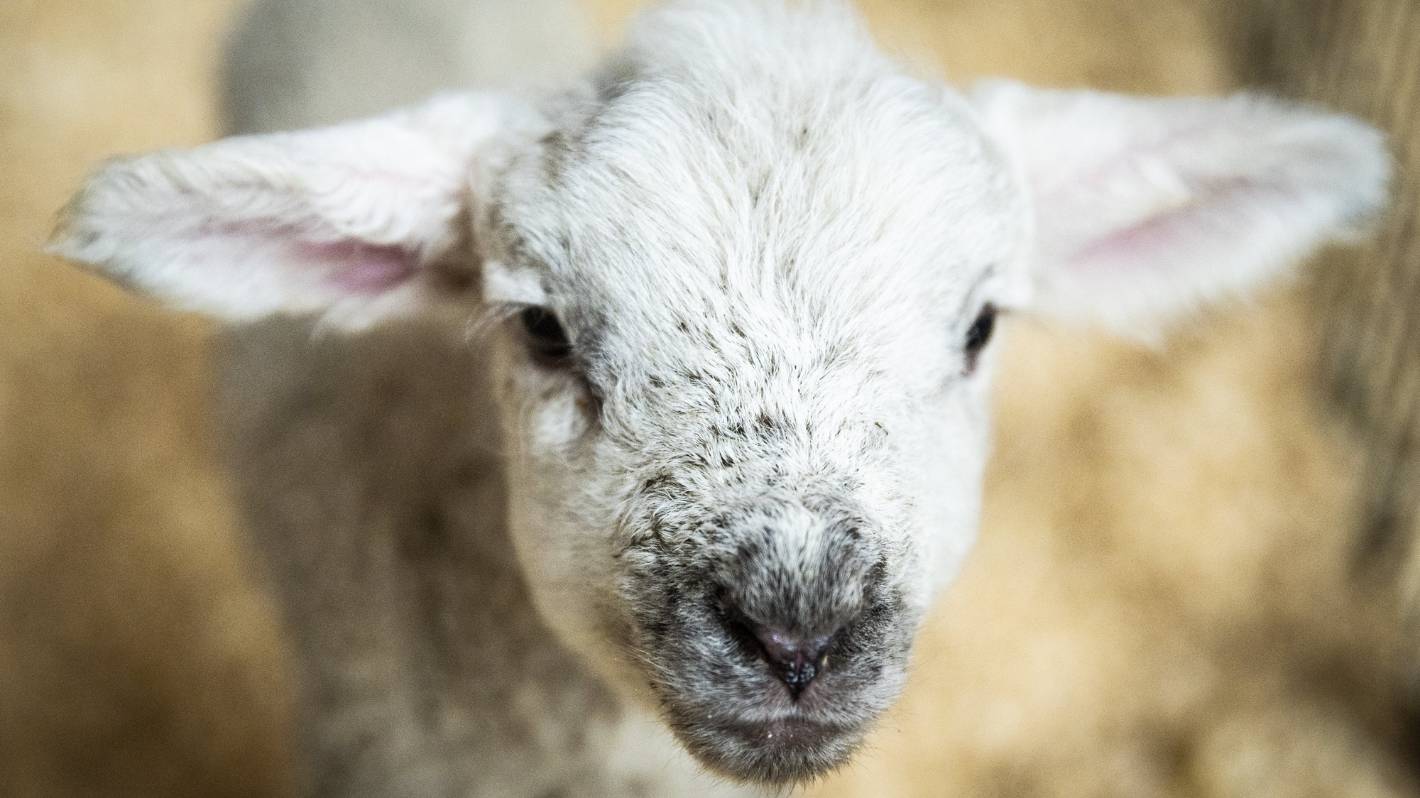Health authorities are warning farmers and animal owners to be extra vigilant about good handwashing after a spring spike in tummy bugs.
Direct contact with farm or domestic animals or drinking contaminated water are common transmission routes for stomach bugs in New Zealand.
Cases usually spike in spring each year, as lambing and calving can increase people’s exposure to the microorganisms causing these illnesses, Northland medical officer of health Dr Ankush Mittal said.
Across the country, about 23 million lambs and 5.5 million calves are born each year.
READ MORE:
* Coronavirus: What does 20 seconds of hand washing look like?
* Hepatitis A in frozen berries: How the virus spreads, symptoms and treatment
* Is this the world’s crappiest job? Poo diving ‘just another day at the office’
“The best way to avoid illness is good hand hygiene practices, involving washing your hands with soap and water for 20 seconds and drying them thoroughly with a clean towel,” Mittal said.
“This is especially important after working with animals and before eating.”
VANESSA LAURIE/Stuff
Contact with farm animals is one way that people can contract stomach bugs. (File photo)
Mittal also encouraged anyone working with livestock to change out of their work clothes before going about routine family or non-farm related activities.
The contamination can cause unpleasant illnesses, which can be life-threatening if severe.
Te Taitokerau has seen an increase in three gastrointestinal illnesses – Cryptosporidiosis, Verotoxin E. coli and Campylobacter, Ngā Tai Ora – Public Health Northland said.
Cryptosporidiosis is caused by a parasite found in the gut of humans and animals. People can become infected from contact with animals’ faecal matter, drinking contaminated water or touching their mouths with contaminated hands.
Symptoms include diarrhoea, nausea and stomach pain, plus sometimes vomiting and fever, and can occur between one and 12 days of infection.
Complications are rare, but it is unpleasant and the parasite can be easily spread.
VANESSA LAURIE/Stuff
About 23 million lambs are born in New Zealand each year. (File photo)
There were no reported cases of this parasite in June in Northland, but 15 cases in August.
Verotoxin E. coli, also known as VTEC or Verocytotoxin–producing E.coli, can make people very sick, with symptoms including severe stomach cramps, diarrhoea (often bloody), and vomiting.
Most people get better within five to seven days, but some infections can be accompanied by complications that can be severe or even life-threatening.
Notified VTEC infections in Northland rose from four in June to six in August.
Campylobacteriosis is another infection caused by bacteria Campylobacter.
It produces an illness of variable severity, with symptoms of abdominal pain, fever and watery diarrhoea, sometimes including bloody stools.
People get infected by eating contaminated food – typically undercooked poultry or unpasteurised milk –or cross-contamination from raw meat to other food.
Campylobacteriosis notifications in Northland doubled from 12 in June to 25 in August.
Recovery from all three diseases can take weeks, and people infected should stay away from work, school or preschool until symptom-free for 48 hours, and public swimming pools until symptom-free for two weeks.
Mittal said it was important to focus on preventing the spread of those organisms with good handwashing.
Children, especially those under 5, were more likely to suffer very serious illness from a gastrointestinal infection, so should be closely supervised to ensure they wash their hands properly after contact with animals, she said.
People should also:
- assume all cattle, sheep and goats are infected,
- cook meats thoroughly,
- avoid raw milk and unpasteurized dairy products or juices and
- prevent cross contamination by thoroughly washing hands, counters, cutting boards and utensils after they touch raw meat.
- avoid swallowing water when swimming or playing in lakes, ponds, streams, swimming pools and backyard “kiddie” pools.




